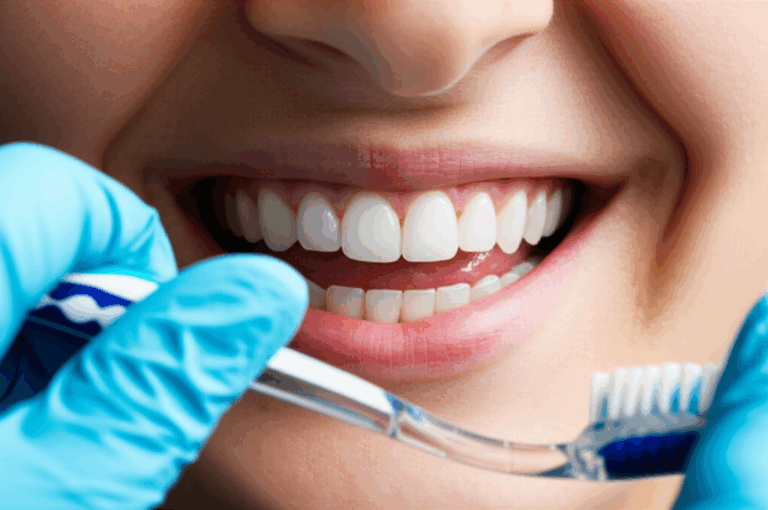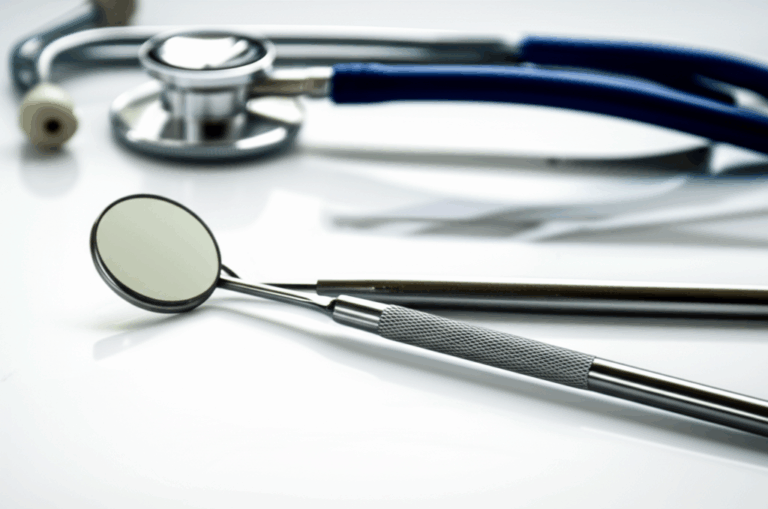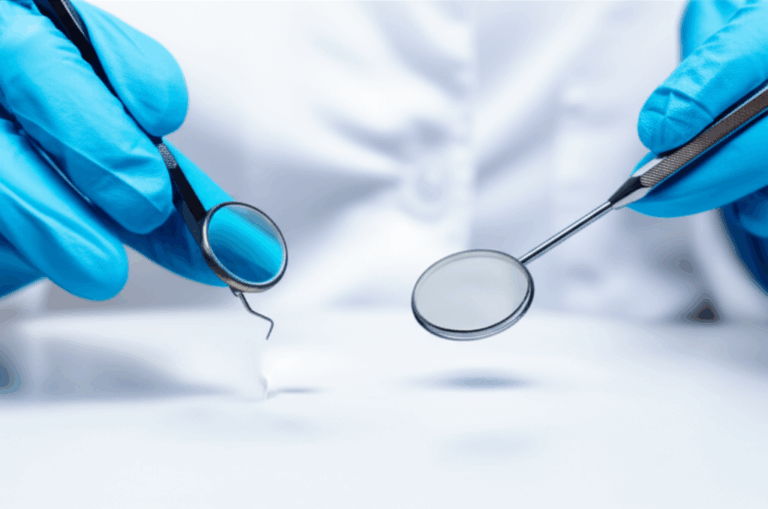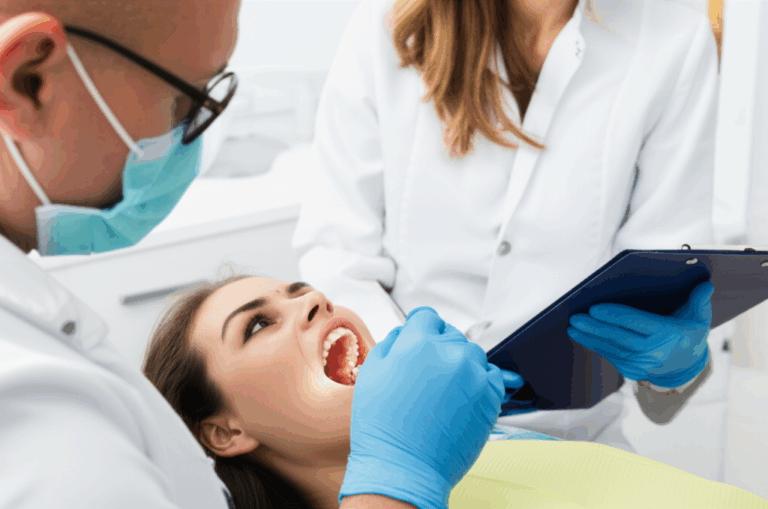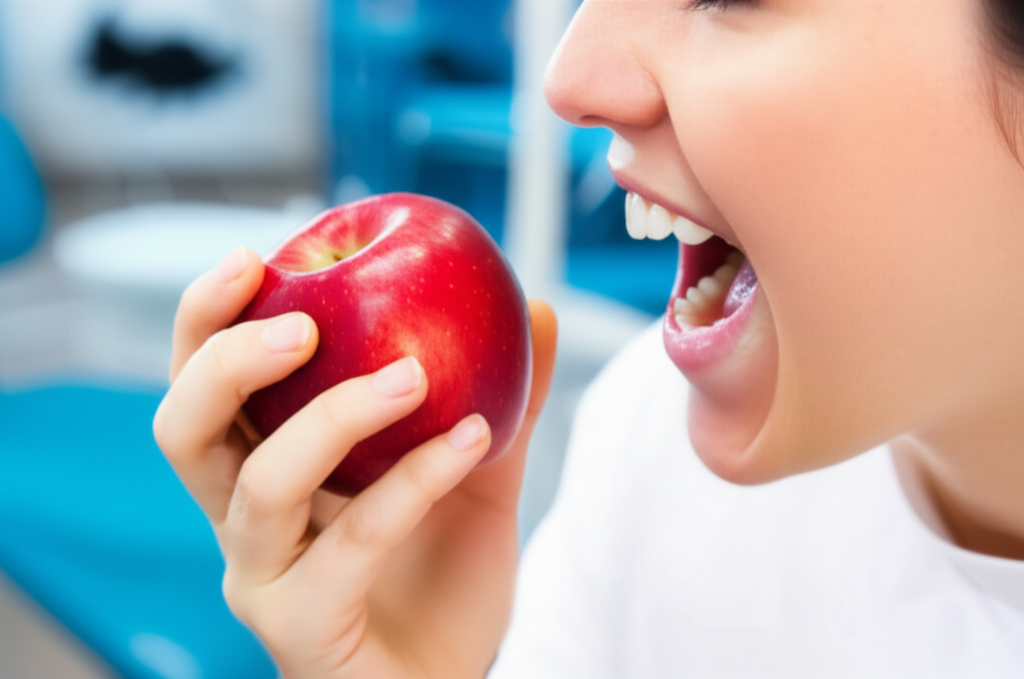
Can I Eat Before a Dentist Cleaning? Your Easy Guide & What to Do
That anxious twist in your stomach before a dental visit might not just be worry—it could be hunger, making you wonder, Can I eat before my dental cleaning? If you’ve ever eyed your breakfast and wondered, “Will this cause problems?” or “Is it against the rules?” you’re not alone. Let’s clear up the confusion and make sure you walk into your appointment worry-free, with simple real answers and easy tips.
The main thing to remember: you don’t have to show up hungry or with a mouth that’s spotless. Most dentists simply want a person with clean teeth and decent breath, not someone who skipped a meal for them! If you want to know what to eat, when to eat, and how to get your teeth ready for a great cleaning, you’re in the right place.
In This Article
What We’ll Cover
- The Simple Answer: Yes, But Some Tips to Know
- What to Eat (And When) Before Your Cleaning
- Foods and Drinks to Skip or Cut Down Before Cleaning
- Your Must-Do Pre-Cleaning Tooth Routine
- What If You Eat Just Before Your Appointment?
- Special Considerations (Kids, Deep Cleanings, Dental Nerves)
- Wrap Up: Keep Things Clean for the Best Cleaning
The Simple Answer: Yes, But Some Tips to Know
Let’s not waste time.
Yes, you can eat before a normal dental cleaning. Don’t skip breakfast, and don’t try to fast. In fact, if you’re nervous or have an early appointment, eating something often helps. It keeps you from getting dizzy or feeling sick in the chair.
But here’s the thing: what you eat (and how you clean up after) is important. Dentists prefer your mouth be as clean as possible before they begin. Imagine them like a mechanic—they want to see the engine, not pick bread crumbs out of it.
Quick summary:
- Eat if you want or need to.
- Brush and floss well before you go.
- Skip foods or drinks that make your teeth harder to clean.
That’s the main idea. Now, let’s get to the details you want to know.
What to Eat (And When) Before Your Cleaning
Now that you know you can eat, you might be asking: What’s smart to eat before a cleaning? How long before should I eat?
Pick Light, Not Sticky Meals
Pick foods that won’t stick to your teeth like chewing gum or leave your breath stinky. Here are some easy choices:
- Eggs
- Plain yogurt
- Toast
- Oatmeal
- Lean meat (like chicken or turkey)
- Non-acidic fruits (bananas, apples, pears)
Why these?
They don’t stick in your teeth or leave a coating that’s hard to clean.
A Quick Comparison
Think of your mouth as a blank canvas before cleaning. The less mess there is, the easier it is for the hygienist to see what’s happening.
When to Eat
- Finish eating at least 30-60 minutes before your appointment.
This gives you time to brush, floss, and rinse without being rushed.
Drink Water
You can drink water right up until your appointment!
Why?
Water keeps your mouth moist, which helps clean out food and protect teeth.
Avoid: Eating too much or greasy food.
You don’t want to feel uncomfortable in the chair—and your breath will be better, too.
Foods and Drinks to Skip or Cut Down Before Cleaning
There are some foods and drinks you should avoid before your appointment. Don’t worry—save them for after!
Sugary & Sticky Foods
Candy, caramel, cookies, dried fruit, chewy granola bars.
Why?
- They leave sticky leftovers and fresh plaque on your teeth.
- Makes the hygienist’s job harder, and cleaning takes more time.
Acidic Foods & Drinks
Orange juice, soda, lemons, grapefruits, sour candies.
Why?
- They soften tooth enamel for a little while, which isn’t ideal for cleaning.
- Not a major problem for cleaning, but safer to limit them before appointments.
Foods with Strong Smells
Garlic, onions, some spicy foods, certain fish.
Why?
- Smell can hang around, sometimes even after brushing. Be kind to your hygienist!
Drinks That Stain
Coffee, black tea, red wine, or dark sodas.
Why?
- They can stain your teeth and freshen up your breath—in a bad way.
- Cleaning can remove stains, but new ones can make the checkup less clear.
Crunchy, Hard Foods
Popcorn, nuts, seeds, chips.
Why?
- Bits can get stuck between teeth or under your gums, making cleaning take longer.
Alcohol
Why?
- Alcohol dries out your mouth (not healthy).
- It can also affect how some medicines work, like those used if you need numbing.
Your Must-Do Pre-Cleaning Tooth Routine
The most important thing before any dentist cleaning? Keep your mouth clean.
Brush Well
- Use toothpaste with fluoride.
- Brush all teeth for about two minutes.
- Brush your tongue and along the gum line.
Why?
- Removes new food, plaque, and germs.
- Saves you from awkward “you missed a spot” moments.
Floss Properly
- Floss between all teeth and under the gum edge—don’t just snap the floss in and out.
Why?
- Floss is the only way to get stuff out from between teeth. Brushing won’t do this alone.
Rinse (Optional, but Smart)
- Quick swish with mouthwash.
Why?
- Freshens breath.
- Gets rid of bits left behind.
One More Tip
If you wear retainers or mouthguards, clean them well before you go. Your dental team will notice and appreciate it!
What If You Eat Just Before Your Appointment?
We’ve all been there—a meeting runs late or hunger wins. Suddenly your dental appointment is coming fast. Don’t worry!
What To Do:
- No toothbrush? A good rinse and floss picks are better than nothing.
- They may give you mouthwash or let you use the sink.
- Dental teams see (and smell) it all. They care about effort, not being perfect.
Special Considerations
Not everyone is the same. Here are some cases where you might need to do things a bit differently.
For Children
- Kids should eat before, too.
- Help them brush and floss, especially after sticky snacks.
Deep Cleaning (Scaling & Root Planing)
A “deep cleaning” goes deeper under the gums than a regular cleaning, and you might get numbing.
- Follow your dentist’s rules.
- Sometimes, you shouldn’t eat for a few hours after if you get numbed up (so you don’t bite yourself).
- For normal checkups and cleanings, these rules do not apply.
Dental Nervousness
Do what’s best for you. If not eating makes you feel light-headed, have a small, healthy snack.
- Avoid a lot of sugar or caffeine—they can make nerves worse.
- Bring water and tell your dental team if you’re nervous. They can help!
FAQ: Answering Your Top Pre-Cleaning Questions
Q: Can I have coffee before my dental cleaning?
A: Better to skip it, or rinse and brush after. Coffee can stain your teeth and cause bad breath.
Q: Should I brush and floss even if I did it earlier in the day?
A: Yes! Brush and floss as close to your appointment as you can for fresh breath and clean teeth.
Q: My cleaning is during lunch. Can I eat first?
A: Yes. Just pick non-sticky, non-smelly foods, and clean afterward.
Q: What if I’m fasting for some other reason—can I still have my cleaning?
A: Usually, yes. Tell your dentist or hygienist if you’re fasting or have special rules.
Q: Are things different if I have braces or a retainer?
A: Cleaning is even more important, since food can get stuck in wires and devices. Brush, floss, and use any special tools before you go. Read more about taking care of retainers in our dental lab for retainers guide.
Data Table: Easy-to-Know Facts for a Smooth Dental Visit
| Aspect | What Science Says | What It Means for You |
|---|---|---|
| Brush & Floss | Plaque starts just minutes after eating and gets hard in 1-2 days. (ADA) | Clean well so the hygienist can focus on deep stuff, not surface crumbs. |
| Food Leftovers | Left behind food hides problems and slows down cleaning. | A cleaner mouth helps your hygienist do a better job, faster. |
| Bad Breath | Foods like garlic and onions stick around for hours. (ADA) | Be nice—skip strong smells before your visit. |
| Sugars/Acids | Sugar feeds germs; acids wear down enamel. | Avoid right before your appointment to keep teeth strong. |
| Gum Disease/Cavities | Almost half of adults 30+ have gum problems; cavities are common. | Regular cleanings spot small problems early! |
| Eating & Anxiety Before Visit | Some people feel faint if they don’t eat. (Mayo Clinic) | If you need to, eat a light meal—just remember to brush after. |
| Timing | Most cleanings take about 30–60 minutes. Good prep saves time. | Be ready so your cleaning is easy and fast. |
Your Healthy Takeaway: A Quick Checklist
What’s Most Important?
A fresh, clean mouth—no matter what you ate.
Here’s your prep checklist:
- Eat a light meal if you like—skip sticky, heavy, or strong-smelling foods.
- Finish eating 30–60 minutes before your visit.
- Brush, floss, and (if you want) rinse your mouth before going.
- Drink water and keep your mouth wet.
- If you have braces or a retainer, clean them extra well.
- Deep cleaning? Or special procedure? Check with your dentist before eating or drinking.
“But What If I Forget?”
Stuff happens. If you eat and forget to clean, just brush and floss as best you can, rinse with water, and tell your dental team. They’re on your side.
Take Care of Your Smile—One Visit at a Time
Getting ready for a cleaning shouldn’t feel stressful. It’s about helping you (and your dentist) have a good, easy visit and keeping your mouth healthy for the future.
Remember:
- Yes, you can eat before a cleaning.
- Clean up after.
- Pick good foods.
- Tell your dental team what’s going on—they’ve seen everything!
And here’s a bonus tip: A clean visit isn’t just about looks. It keeps your teeth and gums healthy for life. Taking small steps now really helps in the long run!
Curious about how new dental tech is making cleanings better? See our digital dental lab guide or check out the latest in crown and bridge lab science.
Final Encouragement
The best dental visits start with a bit of know-how and good self-care. Next time you ask, “Can I eat before my dental cleaning?” you’ll know what to do, what to eat, and how to feel ready and confident.
Need help or feel unsure? Call your dentist—they’d always rather have a relaxed, informed patient than a worried or hungry one.
Care for your teeth, and they’ll care for you!
References:
- American Dental Association (ADA): www.ada.org
- Mayo Clinic: www.mayoclinic.org
- CDC, Gum Disease: www.cdc.gov/oralhealth/conditions/periodontal-disease.html
Medically reviewed by a licensed dental hygienist. This is general info and shouldn’t take the place of real medical or dental advice.

